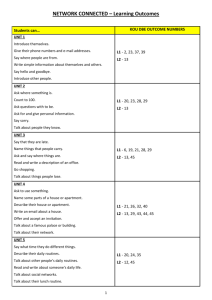Headlines, teasers and lead
advertisement
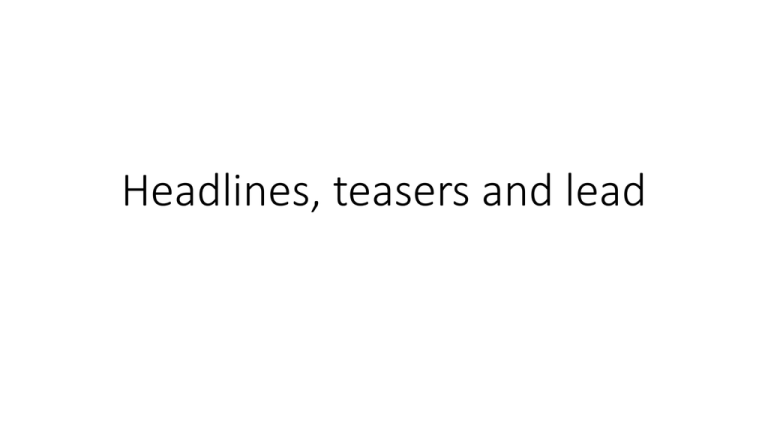
Headlines, teasers and lead A headline is the bold, larger text on top of a story • It is not a complete sentence. • It is often limited to 5-10 words • It is often in present tense A teaser is what is said orally to get a viewer to watch the news; or online to get a user to click A lead is the first sentence of the story. • It is a complete sentence, with a subject and predicate, with articles. • It can be up to 30 words long. • It’s longer to add more context than a headline • If is often past tense because it already happened • We will be writing LEADS in this class. Here are some side-by-side looks Headline style Correct Purdue alumnus shares secrets of success with current students. A Purdue alumnus shared his secrets of success with current students during a talk Monday. (Present tense, no articles, too short so no context) (It already happened, so past tense. Articles make it a complete sentence, the way we talk. We add words to give it context). Headline style Correct City Council cancels recycling. The City Council eliminated curbside recycling Monday to save money. (Articles, past tense because it already happened, more words to add context, day of week to show it is new) (Present tense, no articles, too short so no context) You mostly will use past or future Headline style OK City Council doubles parking restrictions near campus. The City Council on Monday doubled the number of streets with parking restrictions in a near-campus neighborhood. (Present tense, no articles, too short so no context). Students will have a harder time finding parking near campus because of new restrictions passed Monday by the City Council. If you use present, you need an acceptable form Like present progressive: Curbside recycling services are being eliminated in West Lafayette to save money.



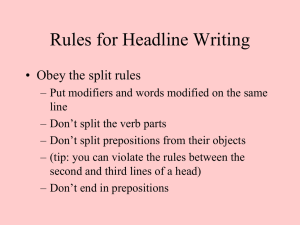
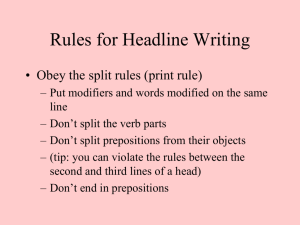
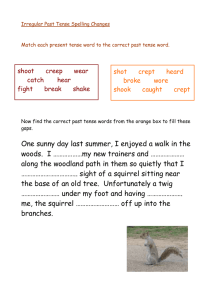
![[Type text] Fill in a fictional “headline from the future” above](http://s3.studylib.net/store/data/008674091_1-c12eeba0d4bd6938777e08ea064ad30a-300x300.png)
